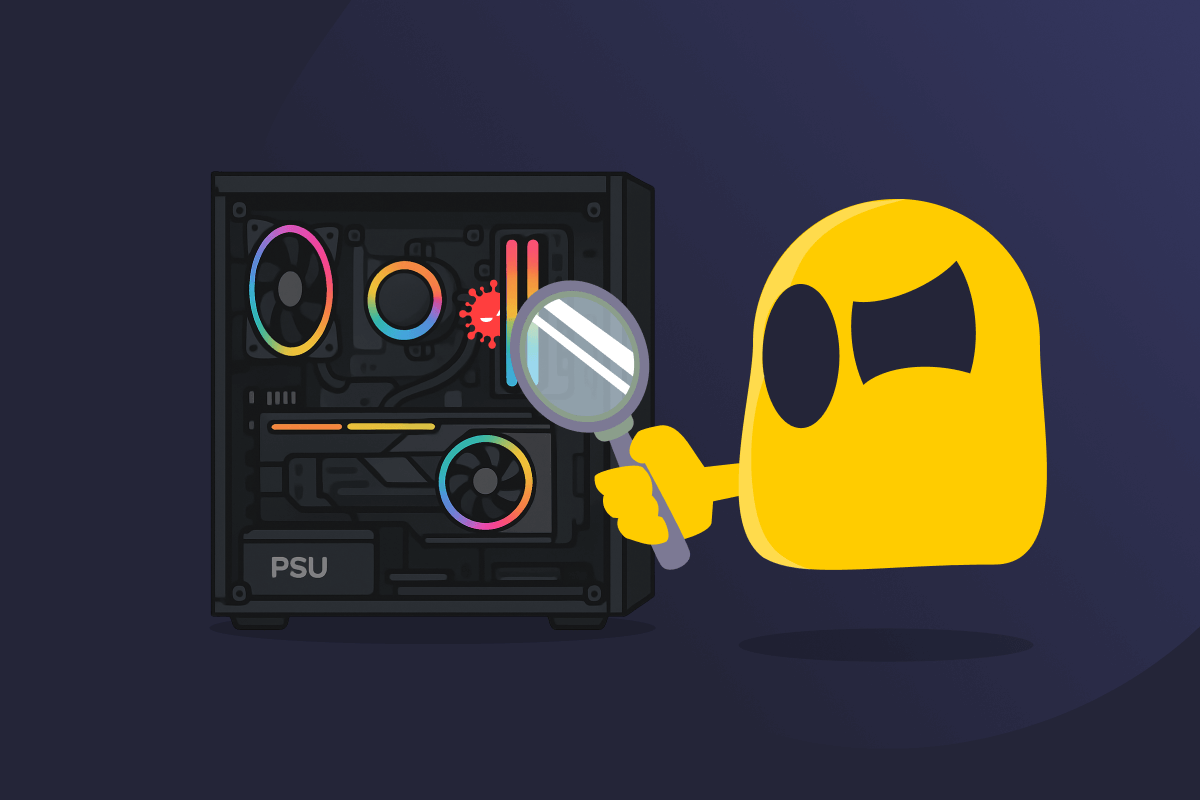Resident Virus

Resident Virus Definition
A resident virus is a type of malware that hides itself in your computer’s memory (RAM). This helps the virus sometimes evade traditional file-based antivirus programs and stay active even if you close or remove the original infected file.
The virus's main aim is to remain hidden, spread to other programs and system files, and disrupt normal operations. Depending on its programming, the virus could compromise other files, monitor system processes, replicate, or even infect your device with malware that steals data.
How Does a Resident Virus Work?
A resident virus infects your system when you open an infected file or program. It then copies a part of its code into your computer’s RAM and begins to infect startup processes or install itself deeper into the operating system to avoid deletion.
The virus will then cause more damage by:
- Compromising system functions: It integrates into core system processes (like opening files and apps) to monitor activity.
- Spreading and interfering: The virus replicates, infecting additional files and programs, corrupting data, and slowing device performance.
- Acting as a delivery mechanism: Once active, a resident virus can download and install other types of malware, like keyloggers, ransomware, or spyware.
How to Spot a Resident Virus
- Poor device performance: Programs might take very long to open or respond, and your system might freeze or crash.
- Unusual file activity: Files or programs might unexpectedly duplicate, become corrupted, or refuse to open.
- Antivirus interference: The virus could interfere with your antivirus, making it crash or fail to update.
- Noticeable background activity: Your computer’s CPU or RAM usage could spike, even if you’re not running resource-intensive apps.
- Random pop-ups or errors: You might see fake errors or pop-up messages trying to trick you into downloading and installing more malware.
Real-Life Examples of Resident Viruses
- Randex (2003): A computer worm that exploits weak passwords to spread through the network, opening a backdoor to provide remote users with access to the infected device.
- Emotet (2014): Originally a banking Trojan, Emotet eventually became a memory-resident malware loader that infected devices with ransomware and info stealers.
- TrickBot (2016): A modular resident virus that infects system memory, propagates copies of itself, and infects devices with more malware (like Ryuk ransomware).
Read More:
FAQ
A resident virus is a type of malware that attaches itself to a computer’s memory (RAM) to avoid antivirus detection. It then spreads to other parts of the operating system and corrupts files, monitors system processes, interferes with security tools, and infects the device with more malware.
Common signs of a resident virus infection include poor device performance, interference with your antivirus system, high CPU and RAM usage, and random pop-up or error messages. You might also notice unusual file activity, like files duplicating, refusing to open, or becoming corrupted.
The best option is to use an antivirus program with heuristic analysis and behavioral detection. The resident virus won’t be able to hide from the antivirus because it will scan for suspicious code patterns and unusual program behavior.
Once you install the antivirus, run a full system scan—this will check your device’s memory and startup items. If the antivirus detects a resident virus, it will quarantine it. For the best results, boot into Safe Mode first because it could limit the virus’s ability to remain active during the scan.
Randex is a good example of a resident virus. It’s a computer worm that evades detection, spreads through the whole network, and opens a backdoor for malicious actors to take over the device. Other examples include Emotet and TrickBot, which are banking Trojans but can hide in the system’s memory and infect a device with more malware.
In theory, it could because the resident virus hides in the system’s memory, and a system reboot clears it. But this rarely works, as the resident virus infects other parts of the operating system (like startup processes) immediately after spreading to your device’s memory. The only way to fully get rid of a resident virus is to use an antivirus with heuristic detection and behavioral analysis.

 45-Day Money-Back Guarantee
45-Day Money-Back Guarantee